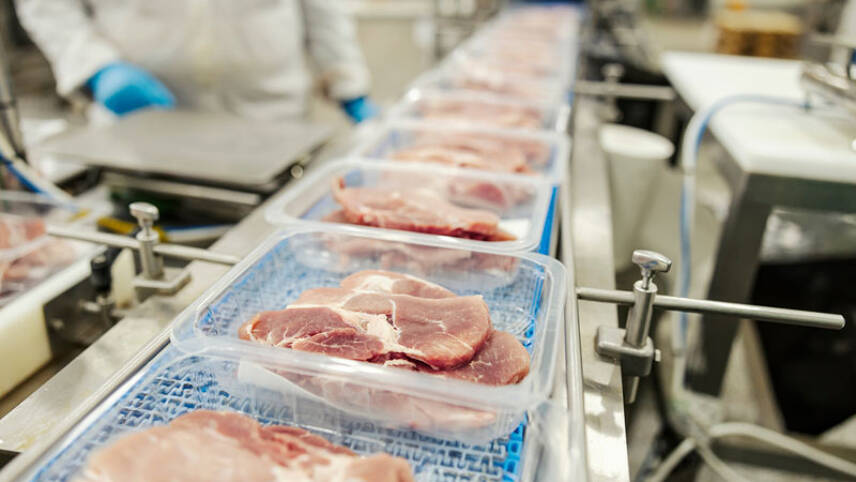Register for free and continue reading
Join our growing army of changemakers and get unlimited access to our premium content

Stock image
That is according to new data published today (7 November) by the FAIRR initiative, which convenes an influential network of investors with more than $70trn of assets under management collectively.
The latest Coller-FAIRR Protein Producer Index assesses 60 publicly-listed animal protein producers worth a combined $364bn on their governance, plus their environmental and social targets and progress.
On climate, almost one in five of the companies are still not disclosing their Scope 1 (operational) and 2 (power-related) emissions. More than half are not disclosing their Scope 3 (indirect) emissions, which likely account for the bulk of their overall emissions footprint.
FAIRR has noted a slight increase in emissions disclosures. For example, US-based WH Group and Tyson foods began Scope 3 disclosures for the first time this past year.
The organisation has also noted an uptick in the number of companies disclosing at least some information on their methane emissions, from 18% of the Index in 2021 to 28% this year. Companies may have felt compelled to act as ever more national governments sign the Global Methane Pledge, which targets a 30% reduction in this potent greenhouse gas by 2030.
FAIRR Initiative’s senior manager for research and engagements, Thalia Vounaki, said there is “still a long way to go” on climate disclosures in this sector.
Vounaki said: “Investors must continue to engage with the sector with a clear message that to manage climate risk they need comprehensive disclosures which include supply chain emissions and full inventories that split which emissions come from feed and which come from animals.”
Target gaps
As well as disclosures, the Index looks at climate targets and plans. Only 14 of the 16 companies have emissions reduction goals verified by the Science-Based Targets Initiative (SBTi).
And the majority of these SBTi-approved goals are not supported with plans in compliance with the SBTi’s guidance released last year on measuring and planning to reduce all emissions associated with Forestry, Agriculture and Land Use (FLAG).
Most companies, FAIRR found, are failing to properly quantify and disclose methane emissions or emissions resulting from deforestation or other types of land-use conversion. Additionally, eight in ten of the companies in the Index do not detail means of improving soil health, which can be a key lever to boost carbon sequestration.
Only one Index company – Danone – discloses all of its FLAG-related targets and emissions.
Without strong targets and credible delivery plans, FAIRR is warning that the sector’s negative climate and nature impacts will not improve. It tracked that the collective emissions of the biggest 20 firms in the Index actually increased by more than 3% year-on-year.
Ahead of the UN climate summit beginning later this month, the UN Food and Agriculture Organisation (FAO) has said it will publish a 1.5C aligned roadmap for the food and agriculture sector. This is a hotly anticipated resource that groups such as FAIRR hope will improve the level of prioritsation given to a low-carbon transition for the sector in policy.


Please login or Register to leave a comment.